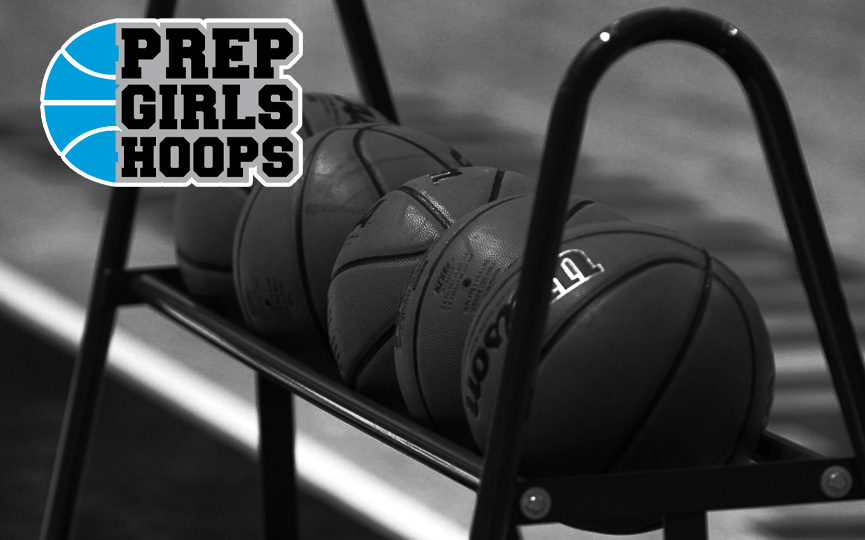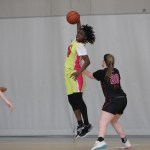Weekly Word: Soft Kids?
Before you make assumptions about where this article is headed, I encourage you to read through the entirety of it before you pass judgement. This is less about the kids of today and more about their guidance and the adults…
Access all of Prep Girls Hoops
Continue reading this article and more.
Continue ReadingBefore you make assumptions about where this article is headed, I encourage you to read through the entirety of it before you pass judgement. This is less about the kids of today and more about their guidance and the adults around them. I put something similar out on social media back in the Spring, and it comes on the heels of a couple of things South Carolina men’s basketball Head Coach Frank Martin has said over the past couple of years. These are just some simple observations I’ve made, and how I have viewed a transition in amateur sports.
I myself have my 25th high school reunion coming up this Spring, so I am now about the average age of parents with high school-aged children. I know how I grew up and how most of the kids around me grew up. I can’t believe with how we were raised, that there is such a lack of toughness and way too much sensitivity by many of today’s parents as it applies to coaching, when coaching today doesn’t even come close to the things we heard and saw when we were playing high school sports. I’m not saying everything we heard or saw was appropriate, but it did help shape us and make us tougher individuals, as well as it made us much more competitive individuals in general.
Using a personal experience, during my Freshman year of high school I started and played in EVERY Freshman and Junior Varsity game in the sport I played that year. I rarely sat, and I even played multiple positions due to necessity. My Junior and Senior years I lettered, and I had opportunities to play in college if I would have chosen to do so. If you’ll notice, I left out my Sophomore year. That year, however, we had a new Junior Varsity Head Coach. I hardly played and didn’t start one time. He played favorites, no question, but at no time did I even consider saying a word to the Varsity Head Coach, nor did I ever complain to my parents. Why?
First, if I would have said anything to my Varsity Head Coach, I likely would have had to run…A LOT…and I would have somehow managed to play even less. There was yelling in our program, some bad language on occasion, and a lot of running as consequence. The Varsity Head Coach and I are friends today, in regular communication, and I appreciate the lessons he and the rest of the coaching staff taught me. They helped me grow, toughen up, and they taught me hard work and humility.
Second, if I would have suggested anything to my parents about the Junior Varsity Head Coach my Sophomore year, I would have been scolded, possibly grounded for disrespecting an authority figure, and I’m guessing they themselves would have told the Junior Varsity Head Coach not to play me at all. Third, if I would have quit…I don’t even want to envision that reaction at home. And yes, my mother actually read the social media post I made back in the Spring, and she was the one who suggested I turn this into an article on the Weekly Word, so she’d be happy to back any and all of it up.
Anyway, as a coach of 23 years now, I find myself at a crossroads. I don’t know that kids today are necessarily softer by nature than we were, as much as they are softer today because they are allowed to be, and worse, they are enabled to be. We are all products of our environment, so I put it more on their environment, both internal (at home) and external (society & culture), than on them just being born softer. Now, I realize that is a blanket statement, and there are obvious exceptions to this, so no, I’m not talking about every single kid today. Please try to understand that.
Honestly, I think about 10% to maybe 15% of parents are what I would call “problem parents”…parents who are overly sensitive, soft, enabling, and act entitled to things for their kids. If they can’t get what they want, they try to ruin every thing for everyone simply to gain leverage and get their way. I hear the word ‘bullying’ thrown around a lot, and for those kids who truly are bullied, I feel for you, and I am sorry. But in the context of this article, and more specifically this point I am making, aren’t those “problem parents” the truest definition of bullies? They manipulate people, manipulate the system, and use hot-button words for administrators in order to get exactly what they want.
They are the same parents who want everyone to know when little Jack or Jill has a good game, and they plaster it from head to toe on social media, direct message every scout and email every college coach, and then get offended because people aren’t there to see each and every single game of theirs. But, do they ever comment to the masses when their kid has a bad game? If someone were to post that their kid was 1-for-8 with 6 turnovers, would they be able to handle seeing real stats? Or would they accost that person publicly or through direct messages?
Listen, so many things go into roster spots, roles, playing time, and publicity…they are not a God-given right. I’ve mentioned this before in a different article, but to me there are five key things that afford you those opportunities.
(1) Talent – Listen, either you’re talented or you aren’t. We really can’t control this much at all. Some people are just more talented than others. Period.
(2) Skill – Get in the gym and work. This is something that does have a talent element to it, but for the most part, you can control skill-building yourself as an athlete, and this is about 90% within your control.
(3) Basketball IQ – Once again, there is some talent involved here, and you must be able to focus and have some cognitive skills, but this is controllable as well. You can always develop this by playing in specific situations more often. You can watch film and do film study with a coach. And you can always attend games as a fan or watch them on television and learn things as well.
(4) Attitude / Coachability / Work Ethic – This is the one area that is always 100% within the athlete’s control. If you don’t possess a positive attitude, aren’t coachable, and don’t work hard, then there is no one to blame but yourself.
(5) Productivity – At the end of the day, whether you have one or all four of the first four items on this list, you MUST be productive to get on the floor. I’ve seen kids who have been talented or skilled or both not be at all productive because they didn’t work hard. I’ve also seen kids who have limited talent and limited skill, but they think the game well and work extremely hard, therefore they are very productive.
Lastly, and I know this is a blanket statement as well because there are exceptions, but I don’t know many coaches who aren’t competitive and who aren’t trying to do what they can to win. If your coach is incompetent, then there’s nothing you can do about that, but I don’t know many coaches who have specific vendettas against individual kids, especially if that kid is productive and can help the team win. But when your kid doesn’t play as much as you’d like, or they aren’t playing the role you expected, before you run in there and “protect” them, maybe consider a couple of items first…(1) when you question their playing time, first find out about the quality of their practice time and how their attitude has been in practice and in the locker room, and (2) consider that other kids, while maybe not as skilled or talented as your kid, might be more productive right now.
Parents, I implore you…let’s stop this soft culture that is polluting our amateur athletics right now, and make your kids fend for themselves from time to time. What will happen when they’re in society as adults? Will you run to their rescue every time their boss yells at them or promotes someone else? Of course not. Why? Because that just sounds ridiculous. So why are we quick to their defense and attack coaches immediately in amateur athletics? High school and college sports for most kids are not a lead-up to a professional career…they just aren’t. Instead, they are an opportunity for them to enjoy and be passionate about an activity that can teach them life lessons. Also, let’s put an end to that 10% to 15% of “problem parents” who are in the way. Speak up…not after something bad happens, but before it happens, or 10% to 15% quickly becomes 20% to 25%. Do what’s right as a parent, not what’s popular.














